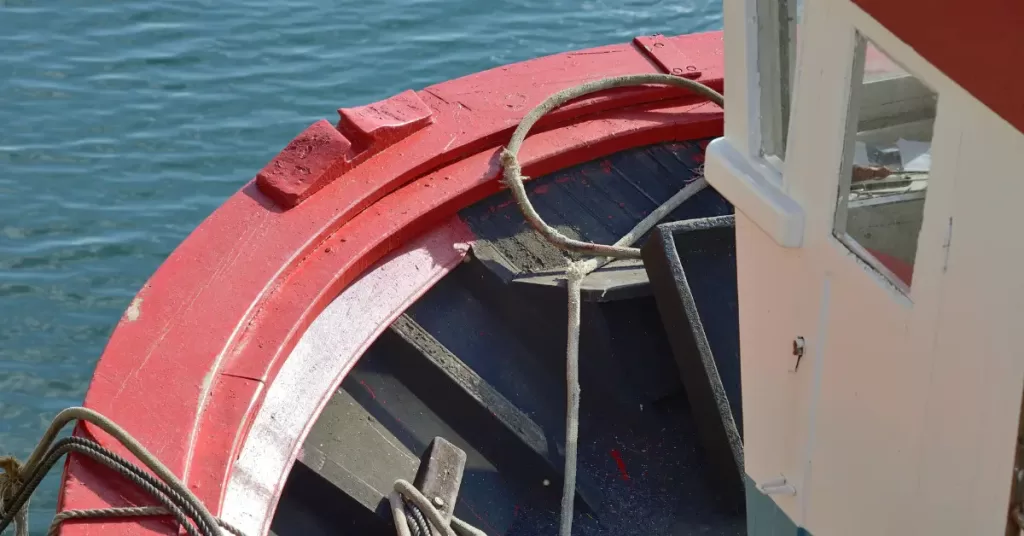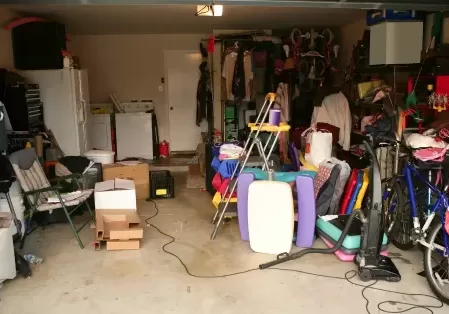How to Safely and Legally Get Rid of an Old Boat
Disposing of an old boat can feel overwhelming—like trying to navigate a sea of options, regulations, and logistical challenges. You can’t simply throw a boat away or leave it on the curb. With legal rules, environmental factors, and the boat’s size to consider, getting rid of it can feel stressful. But it can be manageable and hassle-free with the right advice and approach.
There are multiple options available to get rid of a boat, each offering its own benefits. Whether you’re looking to sell, donate, repurpose, or hire professionals for disposal, understanding these choices will help you make the best decision for both your boat and your circumstances.
Assessing the Condition of Your Boat
Before deciding how to dispose of your boat, it’s important to assess its condition. Boats in good shape or needing only minor repairs are usually good candidates for selling. If the boat requires more extensive repairs, it could still be sold to someone who enjoys restoration projects.
On the other hand, if the boat is no longer functional and the cost to repair it exceeds its value, disposal or recycling might be the most sensible choice. This is especially true when the boat is a safety hazard or its components are beyond repair.
By understanding its condition, you can make the most informed decision about how to handle the boat’s end-of-life process.
Best Ways to Get Rid of an Old Boat
Once you’ve assessed your boat’s condition, it’s time to consider the best disposal options. You have several choices depending on what you hope to achieve, whether it’s earning some cash, helping a cause, or reducing your environmental impact.
Let’s go over the best options for getting rid of a boat.
- Selling Your Old Boat
If your boat is still in working order or only needs minor repairs, selling it can be an excellent way to recover some of the money you originally spent. Boats in decent condition often sell quickly, especially if they are well-maintained and marketed properly.
- Where to Sell: Online platforms such as Craigslist, Facebook Marketplace, and boating-specific forums are great places to list your boat for sale. These platforms connect you with potential buyers who might be looking for a project boat, a used vessel, or even a specific part. You can also consider local boat dealerships or classified ads in your area.
- Preparation is Key: To make your boat more attractive to buyers, ensure it’s clean and presentable. Repair minor damages if possible and take clear, honest photographs to show the boat’s true condition. Transparency will build trust with potential buyers and help close the deal faster.
- Pricing: Research boats similar to yours to understand market prices in your area. Set a fair price, considering the boat’s age, condition, and market demand. Pricing it competitively can help it sell more quickly while overpricing may deter buyers.
Selling a boat requires time and effort, but it can put some extra cash in your pocket and clear up space in your yard or dock.
- Donating Your Boat to Charity
If putting the boat on the market sounds like too much work, consider donating it to a charity. This not only helps a good cause but may also qualify you for a tax deduction, making it a win-win situation. Here’s how boat donations work:
- Find the Right Charity: Some charities accept boats as donations, especially those that focus on supporting veterans, marine conservation, or educational programs for disadvantaged communities. Be sure to research local organizations to find one that aligns with your values.
- Tax Deduction Basics: When you donate your boat, you may be eligible for a tax deduction. If the charity sells the boat, you can deduct the sale price or at least $500 if it sells for less. If the charity uses the boat for its own purposes, you can deduct its full fair market value. However, it’s important to note that the IRS requires you to get an official Form 1098-C, which the charity must issue within 30 days of your donation.
Donating your boat is a straightforward option that benefits both you and a charity in need.
- Repurposing Parts of Your Old Boat
If you have an interest in DIY projects or eco-friendly alternatives, repurposing parts of your boat could be a great idea and the perfect solution. This option allows you to salvage usable components of your boat that might still have value and give them a second life. Here are some of the parts you can repurpose:
- Wood: Salvaged wood from the boat’s deck or cabin can be turned into unique pieces of furniture, garden décor, or even flooring. Many people appreciate the rustic look of boat wood, and it’s often quite sturdy and attractive.
- Metal: Metals such as aluminum and steel can be sold for scrap or used in various home projects. This is especially valuable if the boat’s hull or fittings are made of high-quality metal.
- Motors and Electronics: Motors, wiring, and electronics can often be reused or sold to other boat owners or mechanics for repair and restoration projects.
Repurposing your boat’s materials is an excellent way to reduce waste while getting creative with leftover components.
What to Avoid When Disposing of an Old Boat

While the goal is to dispose of your boat responsibly, there are several pitfalls you should avoid to prevent environmental damage, legal issues, and unnecessary costs. Make sure to follow the correct procedure and avoid these common mistakes.
Improper Disposal Methods
It might be tempting to abandon the boat or simply sink it in the water, but these methods can have severe consequences.
- Legal Consequences: Dumping or abandoning a boat is illegal in many areas and can result in hefty fines or even criminal charges. It’s important to be aware of local laws regarding boat disposal and follow them accordingly.
- Environmental Damage: Old boats can leak harmful substances such as oil, fuel, and paint into the water. This can contaminate local ecosystems, harm marine life, and disrupt the natural balance. Abandoned boats also pose navigation hazards and can damage local waterways, making them dangerous for other boaters.
Ignoring Transfer of Ownership or Documentation
Failing to properly handle the transfer of ownership or documentation when disposing of an old boat can lead to serious complications. If the boat is sold, donated, or handed over to a disposal service, ensure that the title and registration are officially transferred to the new owner or organization.
Without this step, you could remain liable for any future incidents involving the boat, such as environmental damage, accidents, or abandonment. Additionally, some regions require a certificate of disposal or documentation proving that the boat has been scrapped or recycled properly. Always check local requirements and keep a copy of all records for your reference.
Taking the time to handle paperwork correctly protects you legally and ensures a clean break from your boat.
Why You Should Consider Hiring a Professional Boat Disposal Service
If the process of disposing of your boat feels daunting, hiring a professional service might be your best option. Professional services handle all aspects of the disposal, from the initial assessment to the final documentation, making it a simple and stress-free solution.
The Challenges of DIY Disposal
Handling the disposal on your own can be challenging for a variety of reasons:
- Time-Consuming: From researching the best disposal method to coordinating pickup, the time commitment can be significant.
- Physically Demanding: Boats are heavy and difficult to move, especially when you need to disassemble parts or transport them to a waste facility.
For many people, taking on the task alone is simply not feasible.
Benefits of Hiring a Professional Service
When you hire a professional disposal service, you can expect the following:
- Convenience: They take care of everything, including pickup and transportation.
- Compliance: Professional services are well-versed in local laws and regulations, ensuring that you stay compliant with all relevant rules.
- Eco-Friendly Disposal: Many services offer eco-friendly options, such as recycling materials and ensuring proper disposal of hazardous substances.
By hiring a professional, you’re relieving yourself of the logistical and physical challenges of boat disposal.
Choosing the Best Option for Boat Disposal

Disposing of your old boat doesn’t have to be a stressful task. With several options available—whether you choose to sell, donate, repurpose, or hire professionals—there’s a viable solution for every situation. The most important thing is to handle the disposal responsibly, ensuring that the process is legal, environmentally friendly, and convenient for you.
If you’re unsure about the costs or how to proceed, Spartan Junk Removal can offer hassle-free boat disposal services, including a free, no-obligation on-site estimate. Whatever route you choose, you can rest assured that your old boat will be handled properly, giving you peace of mind throughout the process.
FAQs About Getting Rid of an Old Boat
How Do You Get Rid of a Bad Boat?
Donate it, sell it, or hire a junk removal service to handle the disposal.
Are Old Boats Worth Money?
It depends on their condition and parts. Even non-working boats can have salvageable materials.
How Much Does Boat Disposal Cost?
Costs vary depending on size, location, and method. Professional services often provide free estimates.
Can You Donate a Boat for a Tax Deduction?
Yes! You’ll need an appraisal and Form 1098-C from a qualified charity to claim the deduction.







